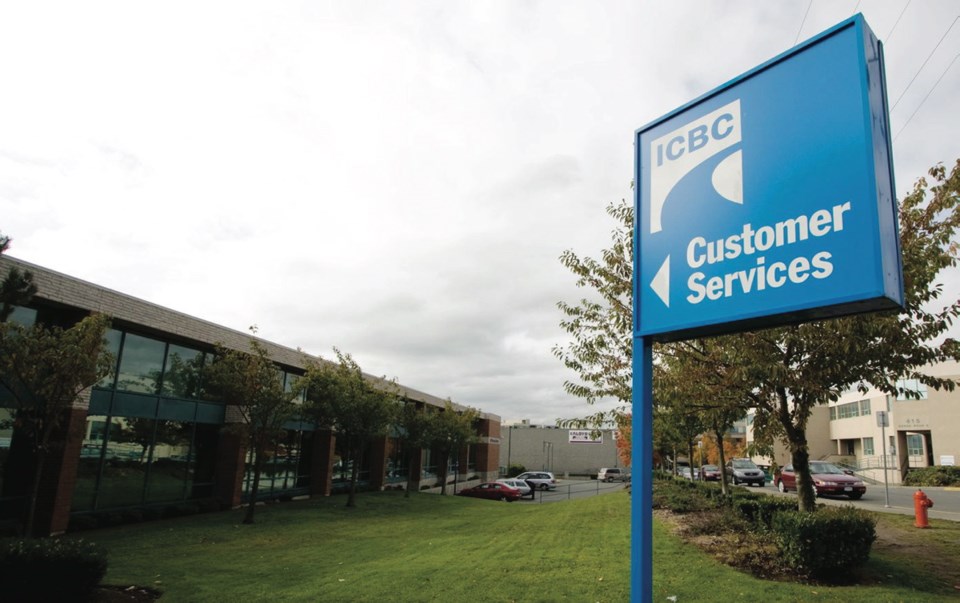An independent review of the Insurance Corp. of B.C. three years ago recommended caps on minor injury claims and premium hikes for high-risk drivers — moves that could have helped stave off a growing financial crisis in the Crown auto insurer but were instead quietly removed from the final report by the then Liberal government.
A draft of a Dec. 23, 2014, report by consultant Ernst & Young contained seven pages outlining changes that were designed to put ICBC on more stable financial footing. The recommendations were not only ignored by the government, which commissioned the report, but a final version released publicly on March 16, 2015, was scrubbed to remove all seven pages and relevant recommendations.
The suggestions included caps on soft tissue injury claims in minor accidents, higher insurance for drivers with histories of infractions such as distracted driving, and changes to how government sets ICBC’s capital reserve levels. Collectively, the reforms could have saved hundreds of millions annually, according to the report.
“ICBC has some work to do in further optimizing its operations; however, these changes alone will not contain claims cost growth to within sustainable levels in the medium to long term, particular with regards to bodily injury claims costs,” read a section of the draft report that was removed from the final version.
“In order to sustain low rates going forward while continuing to work in the best interest of policy holders, the province could consider the levers at its disposal such as introducing limited product reform to cap benefits for minor injuries and adjusting the premium structure to ensure equity among policyholders by driving risk rating.
“This would require a bold change in policy direction but the results observed in other jurisdictions in terms of claims cost reductions are compelling.”
It wasn’t until 2017 that those ideas were seriously considered, after Ernst & Young wrote a second report with many of the same recommendations. By then, ICBC’s financial state had deteriorated so badly that the report warned the Crown corporation was unsustainable and motorists would need to brace for insurance hikes of almost 30 per cent in the next two years unless drastic changes were made.
NDP Attorney General David Eby has said he’s exploring caps on claims, among other changes, to salvage ICBC from its current path to insolvency. Meanwhile, ICBC lost $612-million in 2016/17.
“There’s now evidence the old government was told how to prevent a crisis at ICBC and protect drivers, but instead of looking out for B.C. motorists, the B.C. Liberals decided to look out for themselves,” Transportation Minister Claire Trevena said.
“It’s outrageous that the B.C. Liberal government not only ignored this advice but they deleted the recommendation as if it never existed.”
ICBC said it did not commission the report and that it was produced for the Ministry of Transportation. ICBC’s board only received the final March version of the report.
ICBC is facing financial pressure due to rising injury claims and legal costs, which exceed the revenue annually from its monopoly on basic auto insurance rates. Minor claims have soared in cost 365 per cent since 2000.
The previous Liberal government promised to keep rates affordable, though some have criticized it for politically-motivated rate caps that only exacerbated the looming financial pressures.
The Liberals also for many years siphoned off hundreds of millions in excess profits from the optional insurance side of ICBC’s business, as well as used that money to subsidize basic rates to keep them artificially low. The 2014 report suggested ICBC lower its capital levels, which were higher than other provinces. The 2017 report added that government continuing to drain the excess optional capital was “not a sustainable solution.” Eby has said the government will no longer remove excess capital from ICBC.



